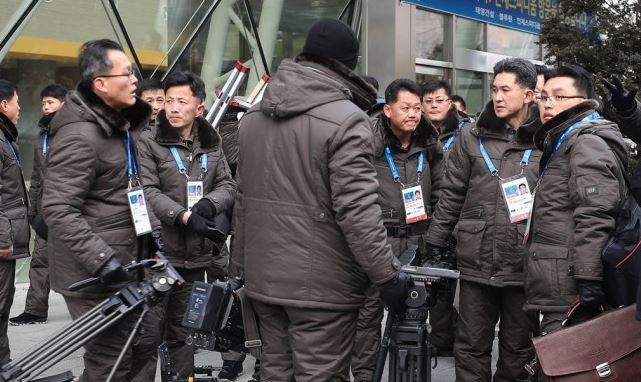[Newsmaker] JTBC's possible Pyongyang bureau to face obstacles
By Jung Min-kyungPublished : July 9, 2018 - 16:25
With representatives of South Korean broadcaster JTBC beginning their trip to North Korea on Monday to discuss possible establishment of a Pyongyang bureau, speculations are rampant on how both sides will reach a consensus, with the existing gap on the role of the media.
Last week, the South’s Ministry of Unification approved JTBC’s application to send an eight-person team to North Korea from Monday to Thursday to discuss cooperation on the media sector and the possible launch of a Pyongyang bureau.
Last week, the South’s Ministry of Unification approved JTBC’s application to send an eight-person team to North Korea from Monday to Thursday to discuss cooperation on the media sector and the possible launch of a Pyongyang bureau.

If such a bureau is established, JTBC would be the first South Korean news agency to operate a branch in the North’s capital city. Though cross-border exchanges on the media sector have existed throughout the previous liberal Kim Dae-jung and Roh Moo-hyun administrations, bureaus by South Korean news agencies are yet to be established on Northern soil.
While speculations build, experts say that South Korean news agencies are likely to face the same obstacles that other foreign press in Pyongyang struggle with, in terms of freedom of press.
News reports in North Korea are censored and overseen by the government, and its main news agency, the Korean Central News Agency, is widely considered as the reclusive regime’s mouthpiece.
“It seems North Korea is seeking to find appropriate means to report their thoughts on their initiative for economic development and efforts to improve diplomatic ties with the international community, while linking it with the current issue of denuclearization,” said Hong Min, director of the North Korean studies division at the Korea Institute for National Unification.
“But there will definitely be a limitation to press coverage, even if there is a bureau in Pyongyang, and much of the contents will be limited to their official announcements, messages, and events they want to showcase to the international community,” he added.
Foreign press including the Associated Press opened a video-only bureau in Pyongyang in 2006, which later developed into the first Western all-format bureau in the country in 2012. Agence France-Presse also opened a bureau in 2016. Both of them continue to produce restricted reports under the heavy supervision of the North Korean government.
But Hong also said that establishment of a South Korean news bureau in Pyongyang would be setting a milestone in cross-border media cooperation, as previous exchanges between broadcasting companies were deemed only “skin deep.”
“This seems like an exchange on a different level, because before, it was just a certain South Korean broadcasting company receiving videos of North Korean soap operas and broadcasting them here. If this is actually about news reports, then it is a noteworthy step in media cooperation,” Hong said.
Several South Korean media groups have been seeking to establish branches in Pyongyang as border tensions alleviated on the back of North Korea’s participation at the PyeongChang Winter Olympics in the South in February.
By Jung Min-kyung (mkjung@heraldcorp.com)







![[KH Explains] How should Korea adjust its trade defenses against Chinese EVs?](http://res.heraldm.com/phpwas/restmb_idxmake.php?idx=644&simg=/content/image/2024/04/15/20240415050562_0.jpg&u=20240415144419)











![[Today’s K-pop] Stray Kids to return soon: report](http://res.heraldm.com/phpwas/restmb_idxmake.php?idx=642&simg=/content/image/2024/04/16/20240416050713_0.jpg&u=)